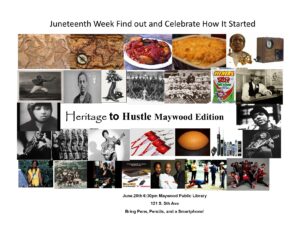
Chicago Fashion Businesses
Post-2020: How Chicago's Fashion Businesses Remained Extraordinary Even In A Pandemic
Revised: 08/25/2022
During the global pandemic, many of Chicago’s fashion businesses had to ‘sink or swim’ to keep their businesses afloat. Some couldn’t swim against the tide and didn’t make it. In contrast, others tapped into their adaptability and innovation.
Email newsletters flooded inboxes, and notifications encouraging the use of face masks are becoming the new normal. As stores adapt to social distancing and staying-in-place orders, some businesses have had to close warehouses but continue to take future orders.
Optimo Hat Company, 1700 W. 95th St., had to close both their store and warehouse locations to protect their staff but are continuing to take orders via email.
“We are still accepting orders via phone and email,” said Tiffani Bell, General Manager at Optimo Hat Company.
“We only decided to close our doors because we wanted to comply with the Governor’s mandate and prioritize our
Optimo Hat Company focuses primarily on custom-made pieces fitted explicitly for the customer. The Optimo factory is called a “working museum” of hat equipment dating back to the turn of the century. Most of the equipment can be dated as far back as the late 1800s.
COIVD-19 was the catalyst for many U.S. governors to implement stay-at-home and social distancing orders. In Illinois, Gov. J.B. Pritzker lengthened the state’s stay-at-home order twice before things got back to normal, country-wide.
To abide by the new orders, some stores implemented curbside pickup or focused on campaigns encouraging online shopping.
According to Forbes, curbside pickup has become popular among customers, and many establishments still use the practice, even after things have ‘returned to normal’. About 75% of buyers opt to pick up purchases, and larger stores like Neiman Marcus adapt to consumers’ wants.
“We simply had to let our clients know via social media and our website what the new protocols would be,” Bell said. “[We realized] ordering from their homes might increase margins for human error. We worked on ways to prevent that.”
According to Forbes, product categories had already been significantly disrupted by digital sales over the past two decades, while markets such as apparel transitioned to digital formats sooner. But this does not mean all apparel stores were able to make a successful transition.
Not only Chicago’s fashion businesses – but brands around the country utilized their large following to survive by taking online orders. Some stores even had to revamp their websites and shift gears to keep up with demands.
Production Mode is a local, slow fashion brand that has moved away from taking orders for clothes to creating face masks.
Production Mode pivoted to preparing its website to allow e-commerce, and created an Etsy page for clients to find their brand easily. Even if stores were lucky enough to keep their clientele interested, some sellers saw significant losses, partly because they were closing the retail arms of their businesses altogether.
In early 2022 Big Commerce wrote about consumers’ disinterest in shopping for clothes in person and about how department stores, large chains, and others were closing their physical locations and experiencing losses. Some stores halted their online stores to protect all workers in their supply chain.
Because of this, online apparel sales declined as people had to budget for essential items. Apparel sales were down by 20% month-over-month. Even with sales down, some stores were pivoting to give customers the essentials.
To remedy the problem of supply chain risks, Production Mode began creating and donating face masks to frontline workers. The brand then offered masks to clients on their mailing lists.
“When Gov. Pritzker recommended everyone wear masks in public, we told them we would send them one for free. We also allowed for donations – understanding that any extra [money] would help fund the work for frontline workers,” said Hayes.
 Up to ten other Chicago businesses started campaigns similar to Production Mode and made non-medical face masks for customers. Some face masks were handmade and washable. Some even came with filter pockets for customers whose masks featured filter-liners. Other brands are reusing unsold merchandise to make masks and are selling them for $10.
Up to ten other Chicago businesses started campaigns similar to Production Mode and made non-medical face masks for customers. Some face masks were handmade and washable. Some even came with filter pockets for customers whose masks featured filter-liners. Other brands are reusing unsold merchandise to make masks and are selling them for $10.Production Mode is keen on collaboration, so they partnered with other local artists in Chicago to create face masks. Client lists were shared, cross-promotional campaigns were launched, and the brand expanded to reach clients in New York.
“This can be a really lonely business, like many creative practices,” Hayes said. “Working with more people was great for everyone’s mental health.
Hayes praised their ability to work together as a team, communicating and handing off materials and handling other deliveries even if they couldn’t always work in the same space.
“Even though the coronavirus virus is terrible, having to stop, pause and reevaluate isn’t the worst thing in the world,” Hayes said.
Heads up: Our post may contain affiliate links. Our goal is to provide services, products, information and resources that you can use to build your business or brand. If you buy something through one of these links, you won’t pay a penny more, but we’ll get a small commission. This is just one way you can help us keep the lights on. We are independently owned, and the opinions expressed here are ours alone. Thanks for hanging in there with us; happy shopping!
Urban Matrix Mall participates in the Amazon Services LLC Associates Program, an affiliate advertising program designed to allow sites to earn commission fees by advertising and linking to www.amazon.com. Product prices and availability are accurate and subject to change according to the current date/time. We are disclosing this information under the Federal Trade Commission’s 16 CFR, Part 255: Guides Concerning the Use of Endorsements and Testimonials in Advertising.
TEAM UMAG
MORE FROM URBAN MATRIX MAG


5 SCORE events you can attend to improve your business skills in June

Heritage to Hustle Maywood Edition

Learn How to Grow Your Business and Skills with these 5 webinars
Tell Our Team!
Recent Posts
Hi Impact



